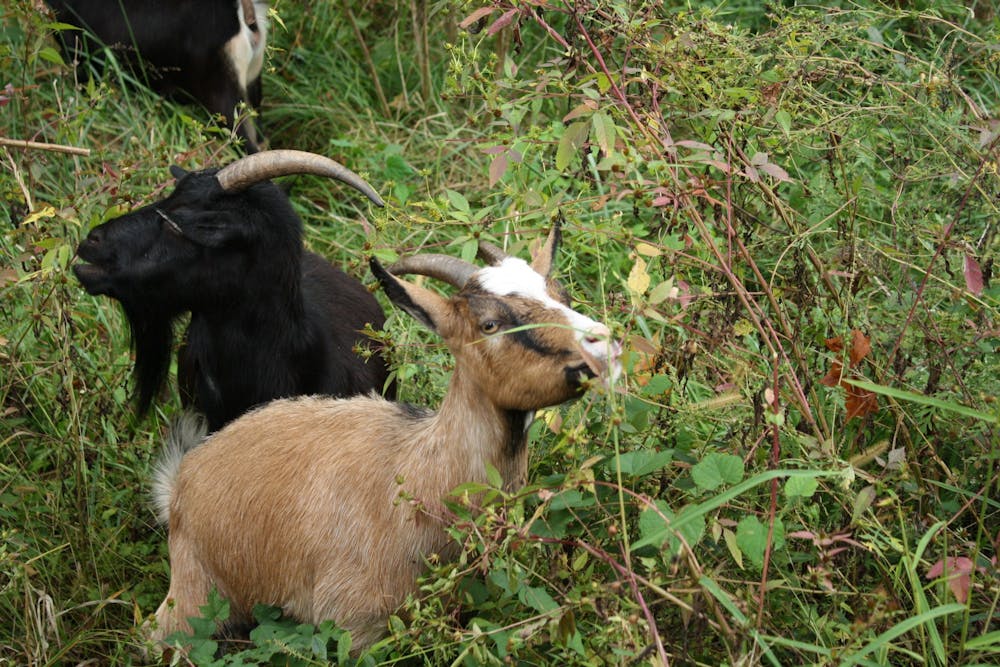The University of Richmond welcomed its third class of grazing goats to the Gambles Mill Eco-Corridor on Oct. 6.
The goats, which were releasedinto the corridor at 12 p.m. on Oct. 6, are tasked with eating overgrown vegetation along the Eco-Corridor. Goat browsing, an environmentally friendly landscape management practice, reduces the need for herbicide, according to a UR press release.
“There are some invasive non-native plants that are starting to smother the native plants, and it's impossible to just spot spray herbicide around and kill the ones you don't want to keep the ones you want,” Kristi Orcutt, RVA Goats and Honey farm owner and manager said. “It's better to get the goats in to clear it so you can see what's in there.”
When the porcelain berries and invasive plant species begin to grow back, UR will remove the remainder of the plants by hand or spot treat with herbicides so the invasive plants do not re-emerge in the spring, according to the press release.
“When [the goats] eat these plants, it allows the native flowers, shrubs and grasses to get much-needed sunlight and airflow,” Director of Sustainability Rob Andrejewski said.

Goats enter the Gambles Mill Eco Corridor.
The goats began their journey about one-third of the way down the trail and will eat their way south toward River Road over the next few weeks, Orcutt said. She released 18 goats on Wednesday but UR has rented 40 more, Orcutt said.
UR initially used Goat Busters in April 2018 for invasive plant removal during the first phase of the construction for the Eco-Corridor, according to the Office for Sustainability website. Orcutt, who is based out of Chesterfield, would step in to help the Afton, VA-based company when a goat needed attention.
“Every time, like, a baby goat got stuck in a hole or something, he’s two and a half hours away," she said. "So I helped him out, so I’m familiar with the terrain.”
This is the second time that UR has used RVA Goats and Honey; from April 23 to May 31, 2019, the goats worked to clear invasive plants such as kudzu, poison ivy and English ivy from an area between the sorority cottages and the Westhampton Tennis Courts and from behind the Modlin Center and Lora Robins Court, according to the sustainability office website.
UR and RVA Goats and Honey also coordinated for the goats to come to several sites last year, but it did not occur as a result of the COVID-19 pandemic, Orcutt said.
When the goats finish their task, they will be relocated to the Northern Neck by the Potomac River, Orcutt said.
Enjoy what you're reading?
Signup for our newsletter
“It is always great when you find a ‘tool’ that everyone loves so much that adds to our goal of helping aid in our invasive species management,” Allison Moyer, associate director of landscape services, said. “We look at having the goats on campus as a win for the university, the community, and the project as a whole.”
Contact news co-editors Ryan Hudgins at ryan.hudgins@richmond.edu and Westen Doran at westen.doran@richmond.edu
Support independent student media
You can make a tax-deductible donation by clicking the button below, which takes you to our secure PayPal account. The page is set up to receive contributions in whatever amount you designate. We look forward to using the money we raise to further our mission of providing honest and accurate information to students, faculty, staff, alumni and others in the general public.
Donate Now



